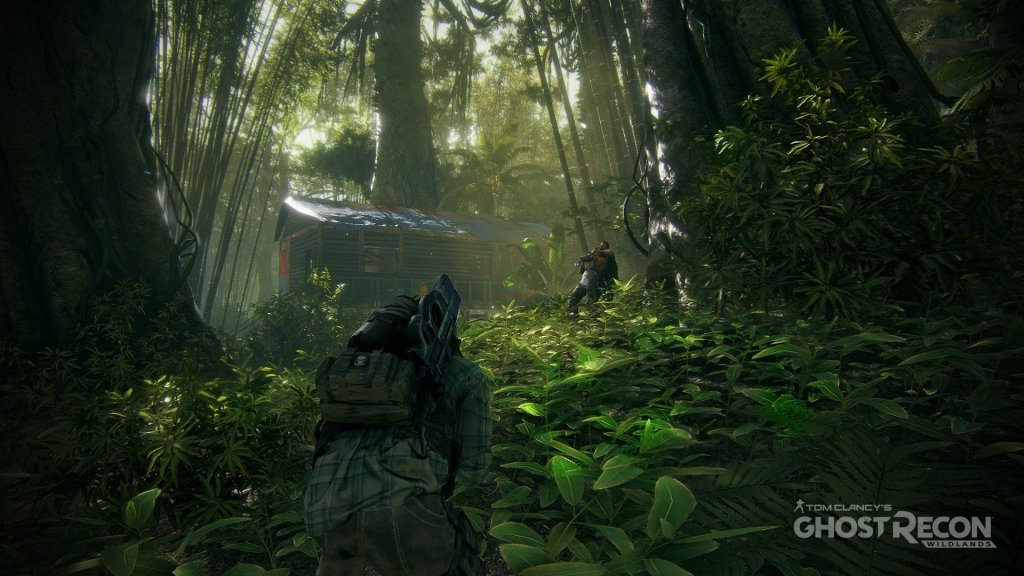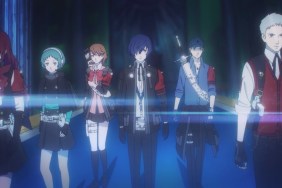Sometimes, in this business, I have to wonder if I received the same game as other outlets. With Ghost Recon Wildlands, especially, I find myself in such a situation. My 4/5 review of the game should say as much for a game that is getting good-not-great reviews, and my opinion of the title has only gotten more positive upon subsequent playthroughs.
But one word keeps popping up when I see people talk about Ghost Recon Wildlands: "Generic." I'll give one concession regarding this: Wildlands looks generic. After all, it's an open-world co-op shooter from who else but Ubisoft. However, it does not play generic. Wildlands has several key elements that provide their own unique flair and make the latest Tom Clancy game an experience worth talking about.
Some people will say that Wildlands' status as an open world multiplayer shooter automatically makes it too generic, regardless of any other factors, and there will be no convincing these people. I'll just say that, if every open world game with side quests and other encounters was considered too generic, then Horizon Zero Dawn wouldn't be sitting at an 89 on Metacritic.
That's not to say that Wildlands is a better game than Horizon Zero Dawn, nor am I saying that the latter is a generic game. I haven't played enough of Guerilla Games' new IP to make that assessment. I only use it as an example to show that games can use familiar framework to deliver an original product; it's certainly not out of the question.
Progression
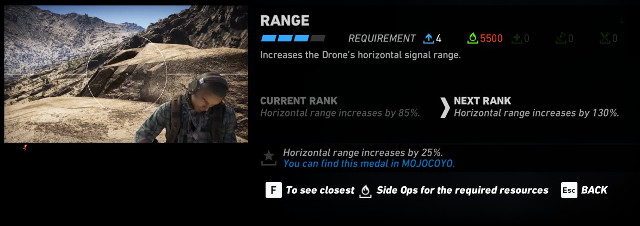
I said this early in my review, and reminded everyone once more. But apparently it still needs to be said: Ghost Recon Wildlands has the most original progression system of any open world game in recent years.
I get so tired of boring, generic, open-world titles whose side-missions are indistinguishable from both each other and from doing anything else in the damn game, because the result is always the same: XP. You get a boring old bag of XP that may be slightly bigger depending on what action you do. Once you level up, you get an upgrade point, which you can put into whatever upgrade you want. This is something a game like Dead Rising 4 (which I basically hated for being so generic) had in spades, and it's as dead as the zombies of Willamette, which is to say that it's still effing everywhere despite its obvious lack of appeal.
A system like this would have killed Wildlands, which is why I'm glad to say its progression system isn't like the one described above in the slightest. You do get XP, which goes into a level. But all leveling up unlocks is access to tiers of upgrades. In order to actually unlock those upgrades, you need two separate resources, both of which you earn through exploring.
An upgrade will cost X amount of upgrade points, which you find in the form of Cartel accommodations around the world, and X amount of one of four separate resources (Fuel, Medicine, Comms Tools and Food), which you can find scattered around the world and earn by stealing it from the cartel in large quantities with different types of missions. So, an upgrade may cost, for example three upgrade points, and 5,000 units of food. In order to get that amount, I have to explore and participate in many different types of missions. Every time you upgrade a certain skill, the type of resource needed to upgrade it again changes. That way, you're not just doing missions that earn you Food or Comms tools forever. You have to spread the wealth.
Even to do something as simple as level up and skill your character, Wildlands doesn't just encourage you to explore – it demands it.
Weapon Unlocks
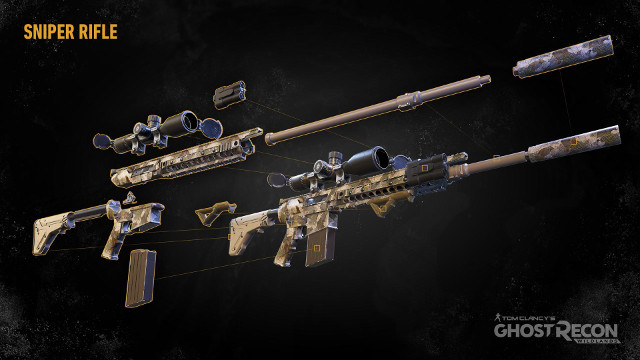
Again, I can't tell you how many times I've seen a weapon unlocks in open world games, and it's always done the same way. Reach a certain level, unlock a certain type of gun. So again, you might as well be doing anything, including just putzing about the land guns blazing, to earn experience and get the weapon you want which will only help you earn more experience. It's bad. Even worse, it could be something like Dying Light (a game I otherwise enjoy thoroughly), where you earn money throughout the game and use moeny to buy weapons at shops around the world.
But not in Wildlands. Just like resources and upgrade points, weapons in Wildlands are scattered throughout the world. You have to explore to find them, or at least explore to find their locations. And it doesn't end there.
Of course, after you've got a new weapon, you'll want to trick it out and customize its stats to fit your playstyle. That's nice. Now go explore and find those weapon parts as well. Want a long barrel for your sniper rifle to make it more accurate? Go find one. These parts are interchangeable only for the type of weapon. So, while a laser sight for an M4A01 will work on all other assault rifles, it won't work on a submachine gun or a light machine gun, for example. So, you'll have to explore even more if those guns are your more your style.
Dynamic Co-Op
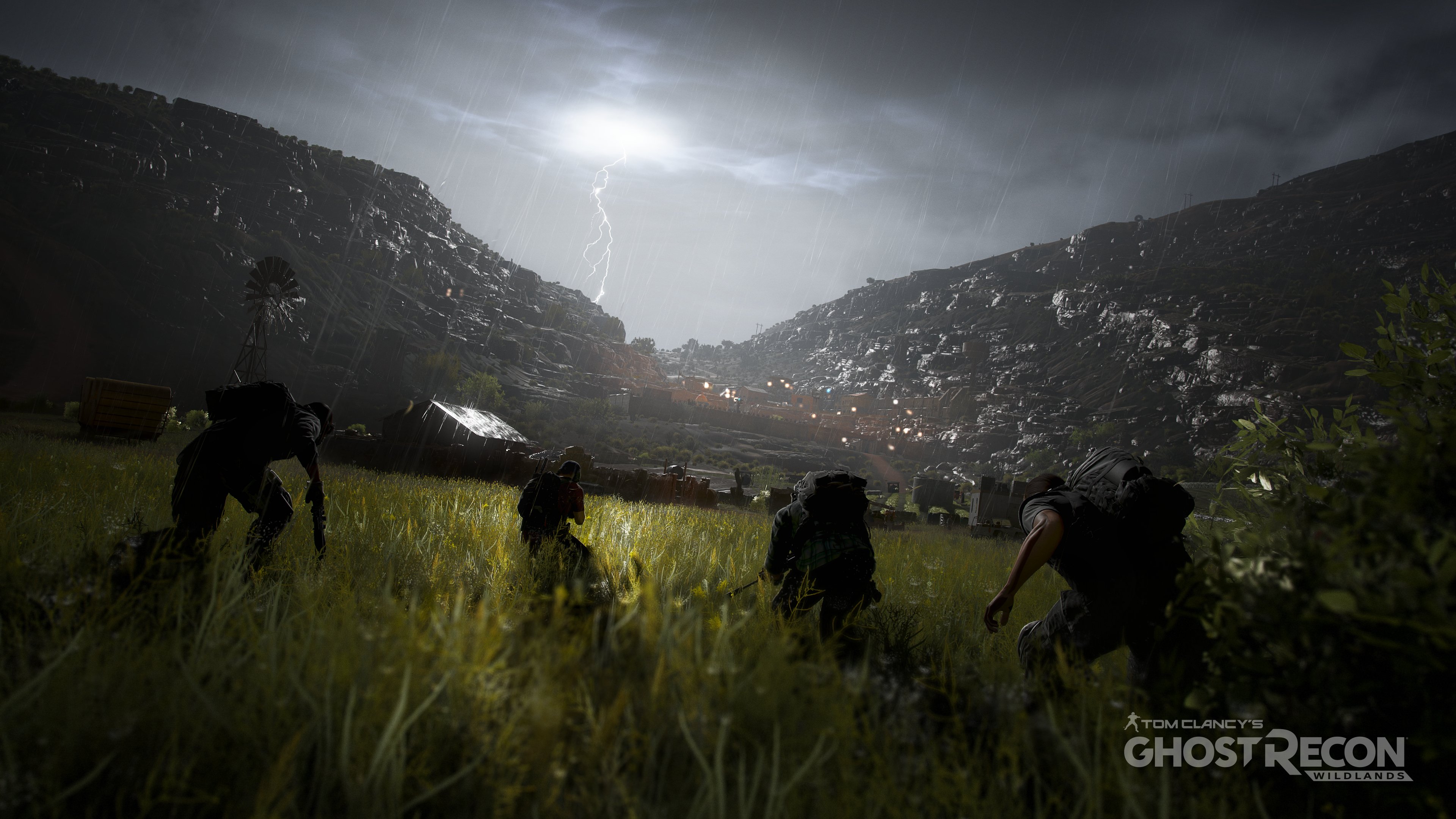
This is a point I brought up in my review, but I haven't played a co-op shooter like Wildlands. Other co-op shooters might as well not be a co-op shooter. Maybe, on occasion, your friend will need to hit a button that only he can access in some contrived scenario, or something like, but you're essentially each killing a bunch of dudes en masse with no regards to how many people are playing with you.
Beating a dead horse here: not in Wildlands. In Wildlands, you succeed together and you fail together. That is to say that, if you mess up, it doesn't just mean you die and your buddies have to revive you (or not, depending on the circumstances). Messing up could also mean exposing your teammates' position and making the whole operation go hot, whether you yourself live or die.
While it will take some practice, you'll eventually grow into a well-oiled machine with your teammates. Just yesterday, I played co-op with a buddy, and we took out a whole encampment stealthily without saying a single word to each other. We knew exactly which groups of people to take out and when, so we marked them with the sync-shot ability, took them out and moved on to the next.
Improved Stealth A.I.
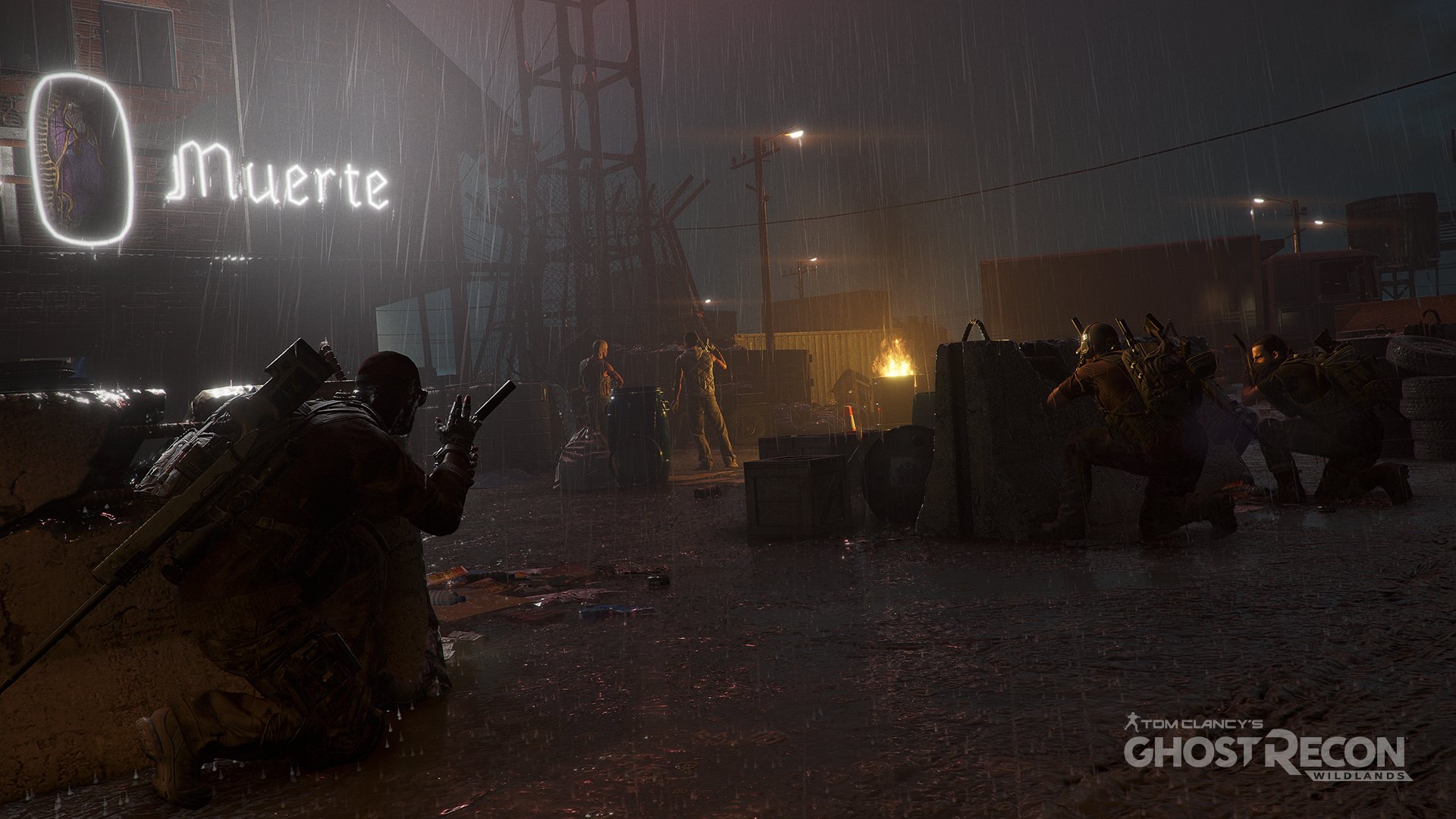
Stealth A.I. in video games is almost always bad, to varying degrees, and they all have the same problems. Of course, this can be as comically bad as the human A.I. in Horizon Zero Dawn that will essentially line up to get killed in a bush without raising a single alarm, but it's almost always a more subtle badness that we've grown to ignore and forgive. We all know how it goes. You'll try to be stealthy, get spotted and then hide for a few minutes before they give up and pretend nothing happened. This can even happen in stealth games where the enemy discovers a body, or, in Sniper Elite 4, for example, experience massive explosions. They'll hunt for the source, give up and continue about their regular patrol.
You're probably tired of hearing this by now: not in Wildlands. Sure, you still have that visible timer that an enemy can see you without actually "seeing you," so to speak. But, once you're seen, or shoot someone in sight range of another person, all bets are off. They will hunt you if they see a body, and they won't let up just because you're hiding. They'll track you down based on where the shot came from and they won't give up until they have located you or they die.
It's a subtle, but vastly important improvement that elevates the stealth aspect of Wildlands over many other stealth games, even ones I really like such as Dishonored 2 and Arkham City.
Believe me, I could go on. I haven't mentioned how Rebel Ops work or how the last ability in each upgrade tree is unlocked, both of which are worthy of discussion and further distinguish Wildlands among other games with similar framework. Yes, Wildlands does a lot of the same things as other open world shooting games, but it does them better and in ways that make it truly unique. Say what you want about its lazily told story or sub-par optimization, but generic Wildlands is certainly is not.
